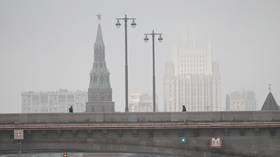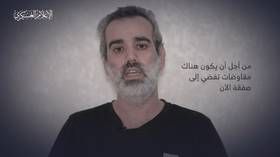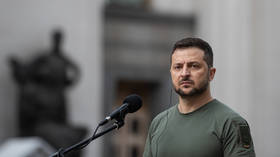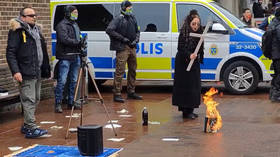Palestinian refugees wait over 60 years to return home
Palestinian refugees fled their homes for Jordan in 1948, during the Israeli War of Independence, expecting to return some day, but refugee camps have become homes even for their children, who have never seen Palestine.
Some experts now warn that frustration with peace talks, stalling by politicians and unemployment may give rise to fundamentalism in Jordan.77 year old Othman Balasmeh, living in the Al Baqa’a Palestinian refugee camp in Jordan, can hardly walk or hear. But he remembers every detail of that night in 1948 when, as a teenager, he and other panicking Palestinian refugees fled for the safety of Jordan during the Israeli War of Independence.They left with nothing more than the clothes on their back. And 60 years on they’re still dreaming of returning.“My children have never seen Palestine. But I taught them that one day we will return. I promised them this. We’ll accept nothing but the return to Palestine. No money, no compensation, no more empty promises,” Balasmeh proclaimed.Othman’s son, Arafat, who is a TV announcer at Al-Karama television, was born in Amman and grew up in Al Baqa’a, the largest of the 13 Palestinian refugee camps in Jordan. He’s never visited his father’s village, which is today a thriving Israeli city. But he believes in the Koran, which he says promises it won’t be long before he returns.“I think there is a new motion or a new movement to work not by speaking only, I think there is another step to liberate our homeland because the peace negotiation and other things related to these things cannot do anything for us,” Arafat Balasmeh said.The implication is clear and authorities in Jordan fear that Palestinian refugees are contributing to the growing terror threat. Over the last few years dozens of people have been killed in attacks.Ever since three hotels were simultaneously bombed in 2005, there have been major security checks in every official building. Experts say the terrorism was imported from abroad and very little of it is homegrown.But homegrown or not it is on the increase, warns a former director of the Mossad, the Israeli intelligence agency, Danny Yatom.“If the Hashemite regime will not fight it the way they need to, it might become an existential threat to the kingdom,” Yatom warned. “We have to bear in mind that there are at least two million Palestinian refugees living in Jordan, almost 100% of them carry Jordanian passports, and also close to one million Iraqi refugees.”But some Jordanian officials say the threat is exaggerated.They blame the Israelis and Americans for painting a false picture of regional instability.The head of the Center for Strategic Studies and National Defense, Mahmood Abu Radese, points out that, “The United States has to justify its presence in the region, saying that every country in the region has extremism and terrorism, and at the end of the day, if we don’t have extremism and they are not fighting terrorism, what they are doing in Iraq and Afghanistan?,” he argued.Today in Al Baqa’a camp, one in five people is unemployed. It’s hard to escape a sense of disillusionment growing and hope fading.No one in the refugee camps wants Jordan as their permanent home, but there is no real answer of where home can be. Below the surface, the pressure cooker that is their life continues to boil – with the threat of exploding one day.












